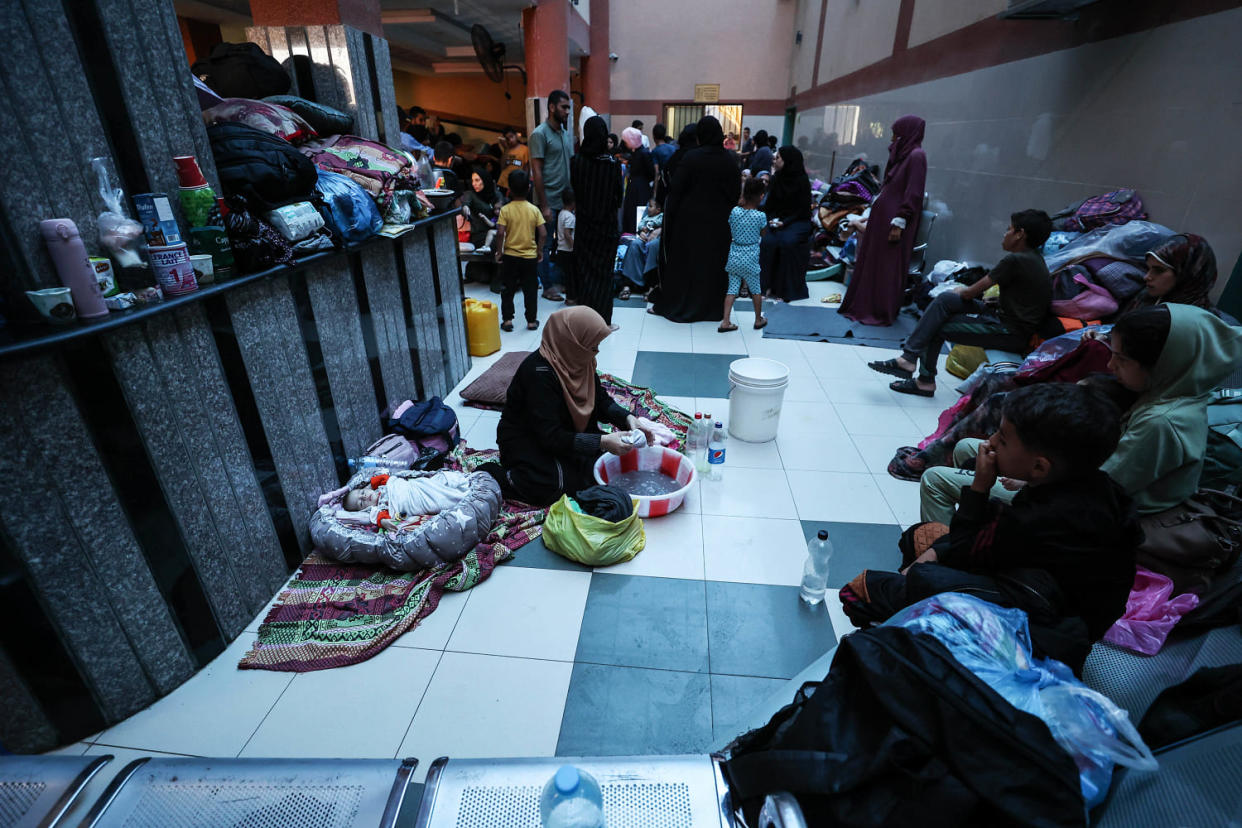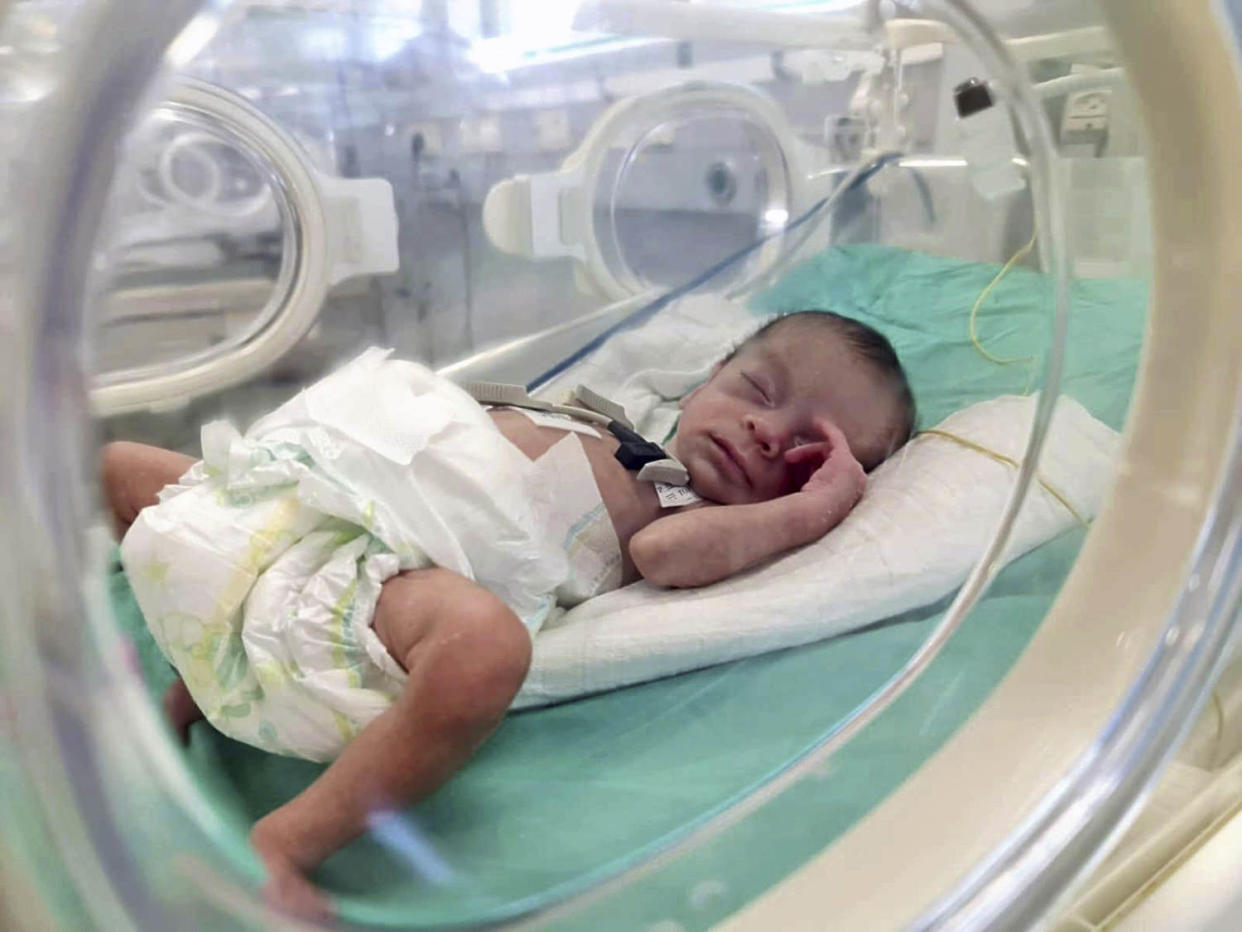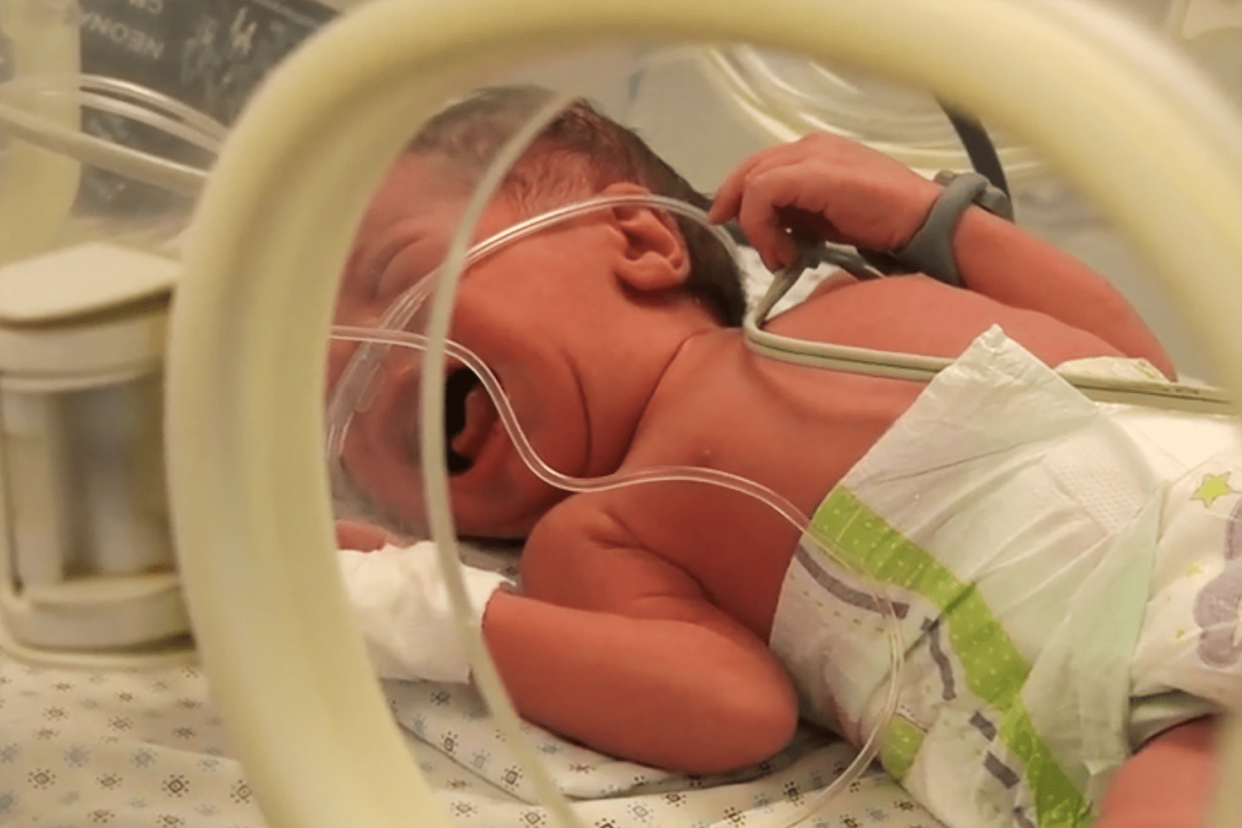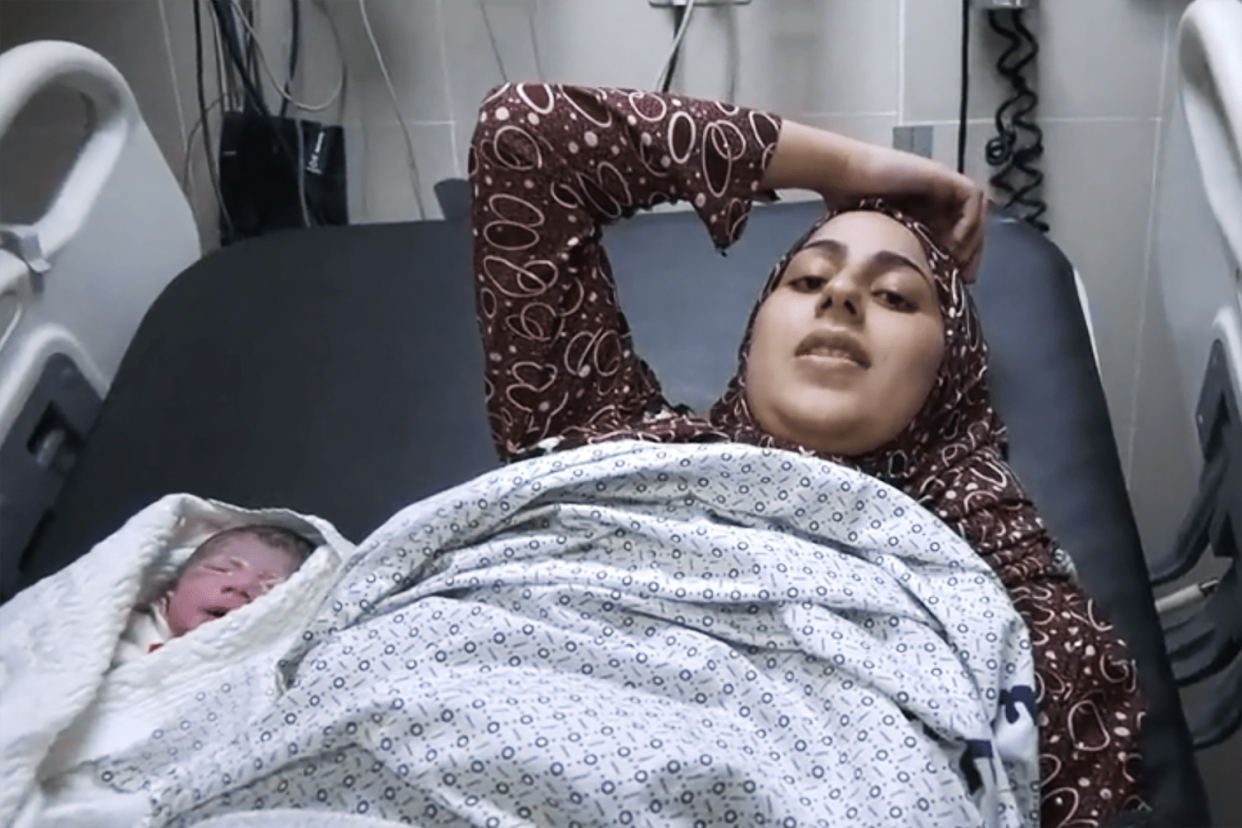Giving birth in Gaza: 'My girl came to the world broken'
TEL AVIV — Ahlam is younger than this war.
The tiny Gazan was born prematurely Nov. 7, weighing just 2.75 pounds. She has spent most of her short life in an incubator in the Nasser Hospital in southern Gaza. The neonatal ward where she’s being cared for is filled with cries of newborns, the beep of the medical machines that keep them alive, and the nearby thunder of Israeli airstrikes.
Ahlam is one of around 180 children being born every day in Gaza, according to the World Health Organization. There are an estimated 50,000 pregnant women in Gaza, mothers-to-be who conceived their children at a time of relative peace but are now giving birth amid the chaos of war.

“The situation is extremely horrible. There’s no humanity. There’s no humanity for people, for patients and for everyone,” Dr. Shireen Abed, a neonatal specialist in Gaza, told NBC News in a voice note on WhatsApp.
For more on this story, watch “NBC Nightly News with Lester Holt” tonight at 6:30 p.m. ET/5:30 p.m. CT.
Hind Shamlakh, 32, almost gave birth under the rubble.
Originally from Gaza City, her family headed south to Deir al-Balah to escape the fighting. They were staying on the floor of a stranger’s home when the house was blown apart by an airstrike, she said. She and her young son were dug out of the debris and taken to a shelter in a nearby school. She soon began to feel acute pain.
“They found that I had blood pressure due to the amount of rubble that was on me, and the air from the bombing caused damage to me,” Hind said. Doctors delivered her daughter, Sham, in an emergency cesarean section Oct. 29. The baby was born with a broken leg from the airstrike, she said.
“Thank God, we made it peacefully, but my girl came to the world broken,” she said.

The mothers and newborns at Nasser Hospital are relatively fortunate compared to those 14 miles north at Al-Shifa, the main hospital in the Gaza Strip. Fighting is raging in the streets around Al-Shifa and the World Health Organization on Sunday declared it was “not functioning as a hospital anymore” because of the lack of electricity, running water and food.
On Tuesday, the United Nations Office for the Coordination of Humanitarian Affairs said in a report there is now just one functioning hospital remaining in northern Gaza.
With no power for incubators, premature babies at Al-Shifa were individually wrapped in blankets and then placed huddled together in a desperate effort to keep them warm. At least three have died already, according to the hospital.
Israel’s military said Tuesday that it was offering mobile incubators to evacuate the newborns to safety but that the offer had not been accepted. The Gaza Health Ministry, which is run by Hamas, said it was prepared to evacuate the babies to Israel or Egypt to save their lives.
Abed said the newborns would not survive unless a solution was found immediately.
“We expect all to die because they don’t have water to prepare milk for them. They don’t have electricity to provide them with warmth,” she told NBC News in a voice note.
Gaza is particularly dangerous for both new mothers and their children because there is nowhere to escape, said Andrew Weeks, a professor of international maternal health care at the University of Liverpool in the United Kingdom.
“People can’t escape and they’re trapped in a place in a very small area, which is then being intensely bombed, in which supplies have been cut off, electricity has been cut off,” said Weeks, who has studied the risks of war for pregnant women.

Nasser Hospital in Khan Younis still has power and water, but staff said they were still facing shortages of basic medical supplies. They were overwhelmed by the number of new patients arriving at the hospital after fleeing south from Gaza City.
Dr. Maher Khamis Sirwana, an obstetrician, said his staff members were delivering twice as many babies as usual — with more than 800 born at the hospital since Oct. 7, compared to the roughly 400 a month he would expect normally.
High levels of stress during pregnancy can lead to serious medical conditions such as high blood pressure and preterm birth, experts say.
“This war is leading to many cases where women are delivering prematurely at seven months or eight months,” Sirwana said. “And we don’t have enough room because we don’t have enough oxygen.”

Sirwana was standing at the bedside of Razan Ghazali, who had given birth prematurely just hours earlier. Her tiny daughter lay beside her, not yet named and her face still covered in pale amniotic fluid.
Razan, 25, said she had walked for miles in one of the long lines of Palestinian civilians trying to flee Gaza City. “I saw the Israeli tanks on the way. I was terrified. I was tired. And that’s why I delivered my baby prematurely,” she said. “It’s a mercy from God that the girl and I are in good health.”
The first-time mother said she had spent months collecting clothes as she excitedly awaited her daughter’s arrival. But she was forced to leave most of them behind and she and her family fled.
“All the baby clothes I prepared for her I lost, Razan said. “Now all I care about is finding clothes and food.”
